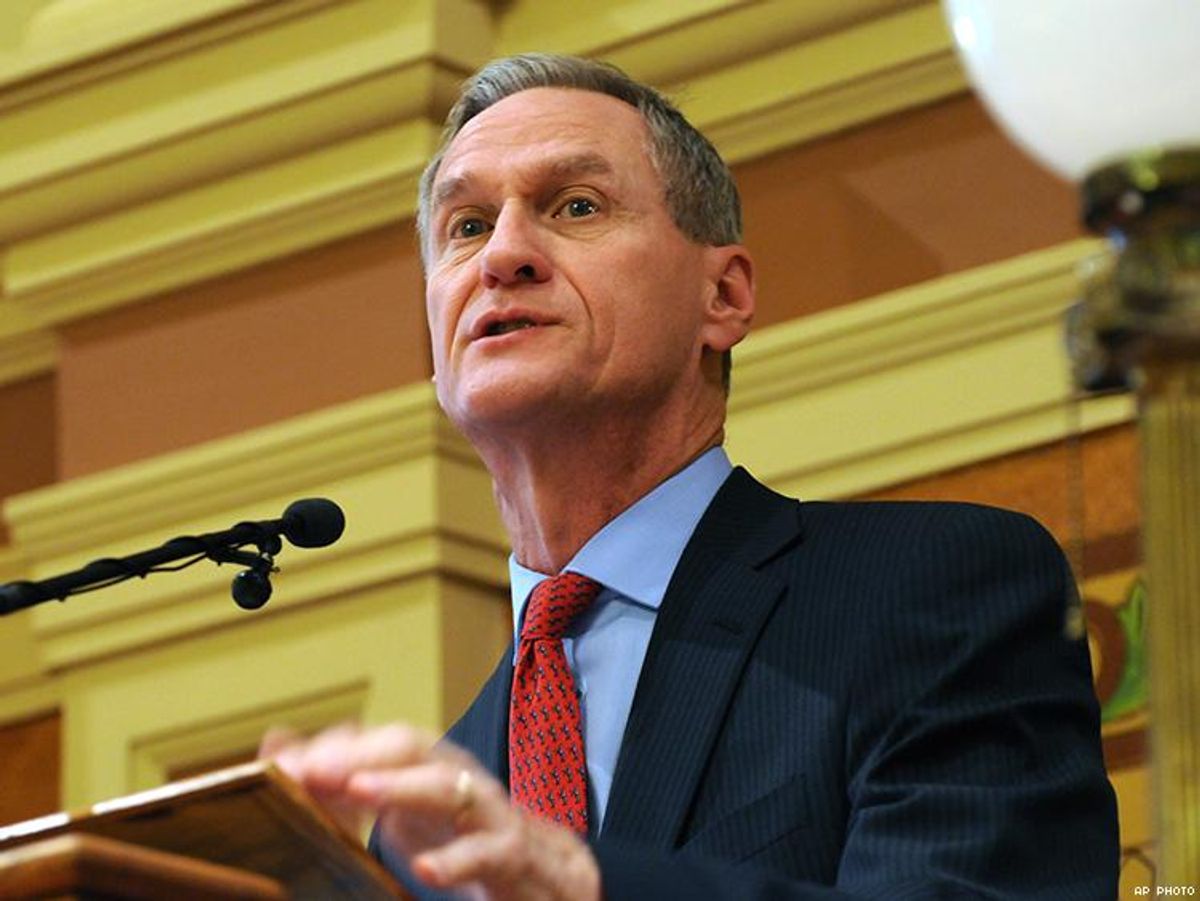All eyes -- at least the eyes of those interested in transgender people's rights -- are on South Dakota as the deadline approaches for Gov. Dennis Daugaard to sign or veto a bill restricting transgender students' access to restrooms and other gender-segregated facilities.
Daugaard, a Republican, has until 11:59 p.m. Central time Tuesday to either sign or veto the legislation, House Bill 1008. If he does not do either, it will become law automatically.
The bill would require trans students in public schools to use the restrooms, locker rooms, and other facilities designated for the gender they were assigned at birth, not the gender with which they identify. Those who object to using the wrong facilities would have to apply to their school district for a waiver that would allow them to use separate accommodations, essentially singling them out.
If HB 1008 becomes law, South Dakota would be the first state with such a statute, and it would put South Dakota at odds with the U.S. Department of Education, which has held that discriminatory treatment of transgender students is banned under Title IX of the Education Amendments of 1972, which prohibits sex discrimination. The department can withhold federal funds from schools that violate this law.
It would put South Dakota school districts in "the untenable position of choosing between complying with state or federal law, putting them at risk of losing up to nearly $200 million in federal funding for their schools in addition to the cost of inevitable litigation," said a Human Rights Campaign press release issued Monday.
"This is not a complicated issue. Governor Daugaard has an opportunity to either stand up for transgender children in his state, or he can ignore the struggles they face on a daily basis and add to the hardship many of them already endure," said HRC president Chad Griffin said in the release. "There's a reason we have heard overwhelming opposition to this legislation from major child welfare education organizations, businesses and corporations in the state, as well as the children and families who would be severely harmed by this bill. When more than fifty percent of transgender youth attempt to take their own lives at least once before turning 21, it's the duty of lawmakers to protect the most vulnerable in their state. The eyes of the nation are on South Dakota, and we strongly urge Governor Daugaard to seize this opportunity to show true leadership by blocking this disgraceful bill and standing up for all of South Dakota's children."
Griffin and Mara Keisling, executive director of the National Center for Transgender Equality, wrote a commentary for Mashable last week pointing out that there are more than 40 bills targeting transgender students in various states this year. "These pieces of legislation are especially egregious because they aren't even addressing an actual problem," they wrote. "Treating transgender students equally doesn't come at the cost of anyone's safety or privacy. Transgender students have already been using the restrooms that match their gender in hundreds of school districts all over the country without causing a single incident of violence or harassment." The HRC, NCTE, the American Civil Liberties Union, and state and local LGBT groups have been working against the South Dakota bill and others. Several major child advocacy groups have also taken a stand against such legislation.
Over the weekend, transgender male student Thomas Lewis of South Dakota published an op-ed in The Washington Post calling on Daugaard to veto the bill. "A discriminatory bill will only make us feel more isolated and alone," he wrote. "People claim that we are scary because we are different or our bodies are different. They tell us we are "twisted" and don't know who we are, but I know who I am and am proud of it. There is no real problem of transgender people using the bathroom that matches their gender and people getting harassed. In fact, it's actually trans people who are most likely to get harassed in the bathroom. It just doesn't make any sense."
Daugaard, who once claimed he had never met a person he knew to be transgender, did meet last week with a group of trans people to get their input on the bill. He has said that opinions on the bill from within the state will carry more weight than those from outside. But there are many within the state opposed to the legislation, including many employers in Sioux Falls, the state's largest city, along with its mayor, Mike Huether, the Sioux Falls Argus Leader reports. They are concerned that the city and state will be seen as unwelcoming.
"When it comes to the potential economic impact, many groups in Sioux Falls are watching this like a hawk," Huether told the newspaper. "There is little doubt it will have an impact on all kinds of fronts."


















































































